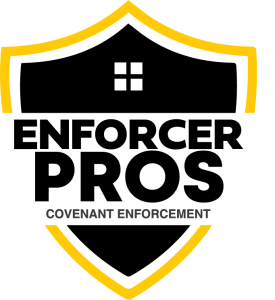Homeowners’ Associations (HOAs) are vital in maintaining their communities’ integrity, safety, and aesthetics. They are responsible for creating the rules and guidelines that residents must follow to preserve peace and cohesiveness. While HOA rules are legal and binding, there are some limitations on which rules an HOA can enforce. Understanding which HOA rules are unenforceable is vital to keeping your HOA compliant with the law and preserving harmony among your residents.
What Makes HOA Rules Unenforceable?
Despite their ability to create covenants and regulations governing their communities, HOAs’ authority is not absolute. Their rules must be consistent with federal laws and should not violate homeowners’ rights. Here are a few reasons why HOA rules may be unenforceable.
Conflict With State or Federal Laws
For any HOA rules to be enforceable, they must complement state and federal laws. For instance, the Over-the-Air Reception Devices (OTARD) rule protects homeowners’ rights to install satellite dishes or antennas. Consequently, any HOA rules prohibiting homeowners from installing these devices are not enforceable. Likewise, rules that discriminate or target a specific group based on race, gender, religion, or other protected classes are not enforceable if they violate state laws.
Overreach of Authority
The authority of HOA boards always exists within the bounds of state and federal laws. As such, HOA rules exceeding these boundaries cannot be enforced. For instance, HOAs do not have the authority to exact fines for minor infractions if the same is not supported by governing documents.
Ambiguity/Vagueness
Rules that lack clarity or are open to interpretation can cause confusion among residents and difficulties for the HOA board’s enforcement. Clear, precise language is crucial to ensure that everyone understands what is expected and to avoid disputes about the meaning or application of the rules.
What Should HOAs Do About Unenforceable HOA Rules?
First, HOAs should regularly review and update the governing documents to ensure they are clear, relevant, and legally compliant. Consulting with legal professionals can provide valuable insights and help avoid legal issues.
Keeping residents informed about the rules, their reasons, and the consequences of non-compliance can build understanding and support. It’s equally crucial that HOAs enforce their rules consistently across the board. Developing clear enforcement procedures and training board members and enforcement personnel can help maintain uniform application of the rules.
Finally, collecting feedback from community members can ensure that the rules reflect the residents’ current needs and values. This inclusive approach can lead to higher acceptance and compliance.
Hire Professional Covenant Enforcers Today
Understanding what actions HOAs should take regarding unenforceable rules is critical to maintaining community harmony and ensuring legal compliance. However, covenant enforcement can be challenging, especially when dealing with difficult residents. The good news is you can always outsource it to the experts. Enforcer Pros offers HOA enforcement services in Georgia to help HOA boards better manage their communities. Contact us today to schedule a consultation.


